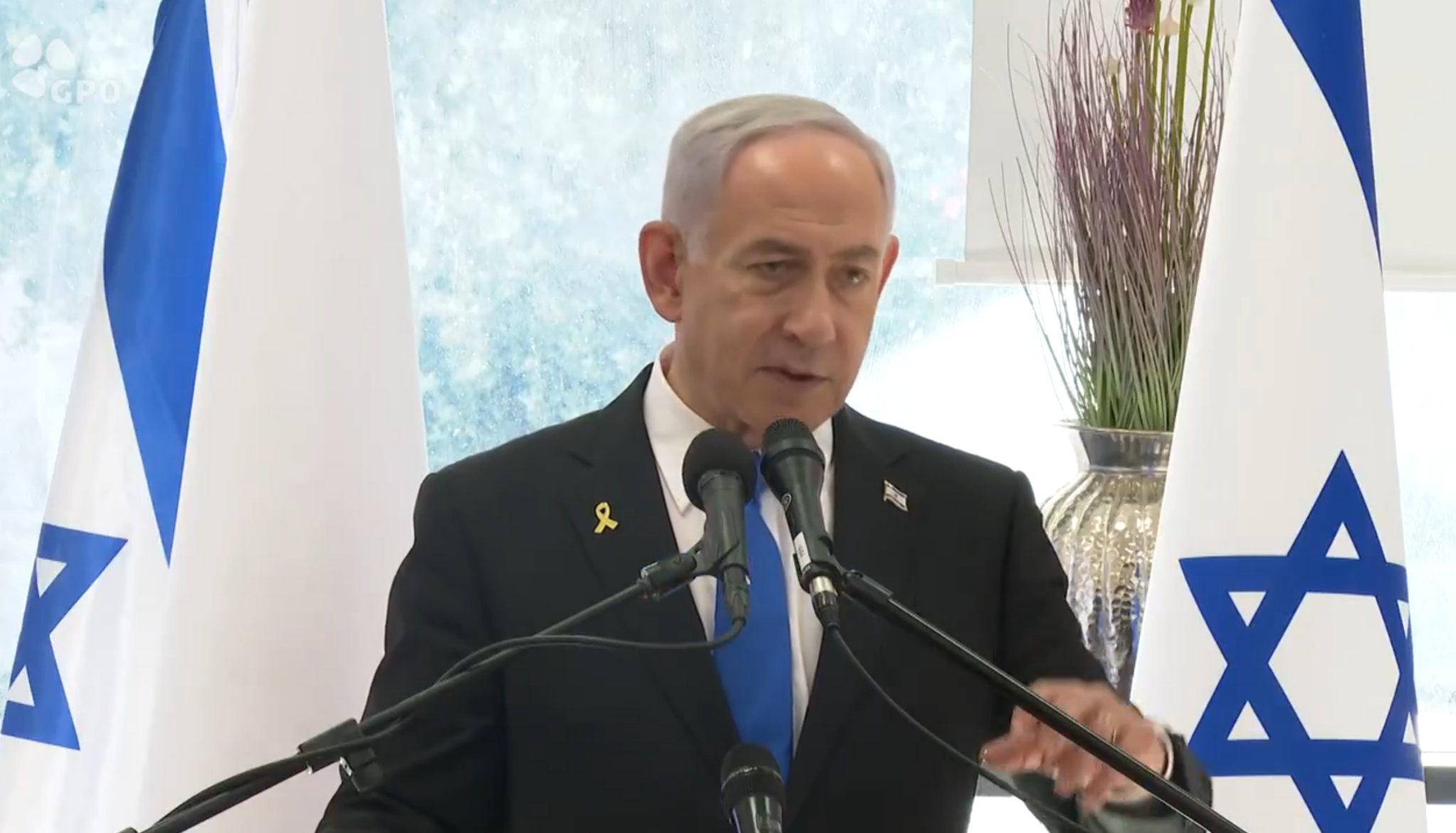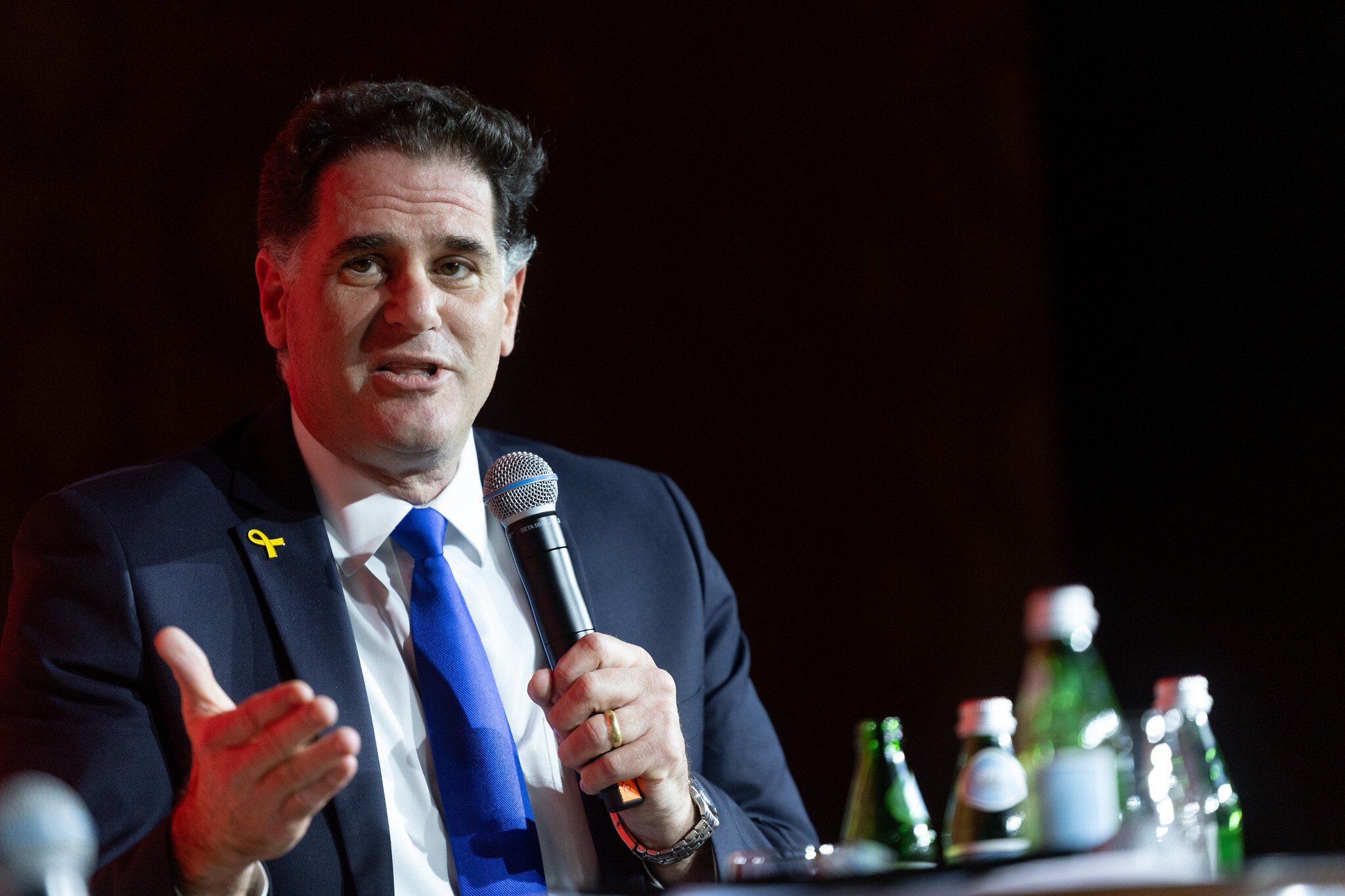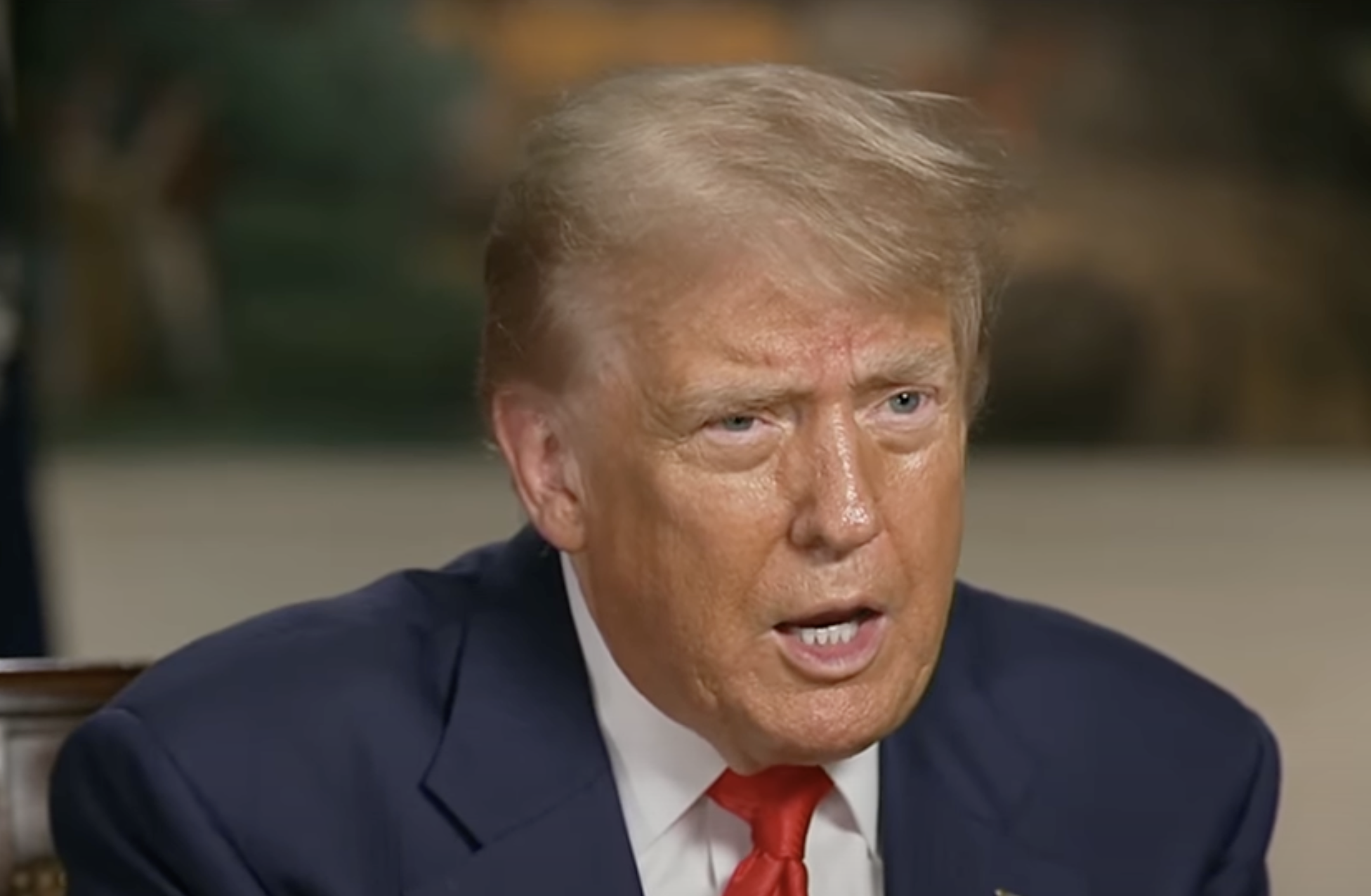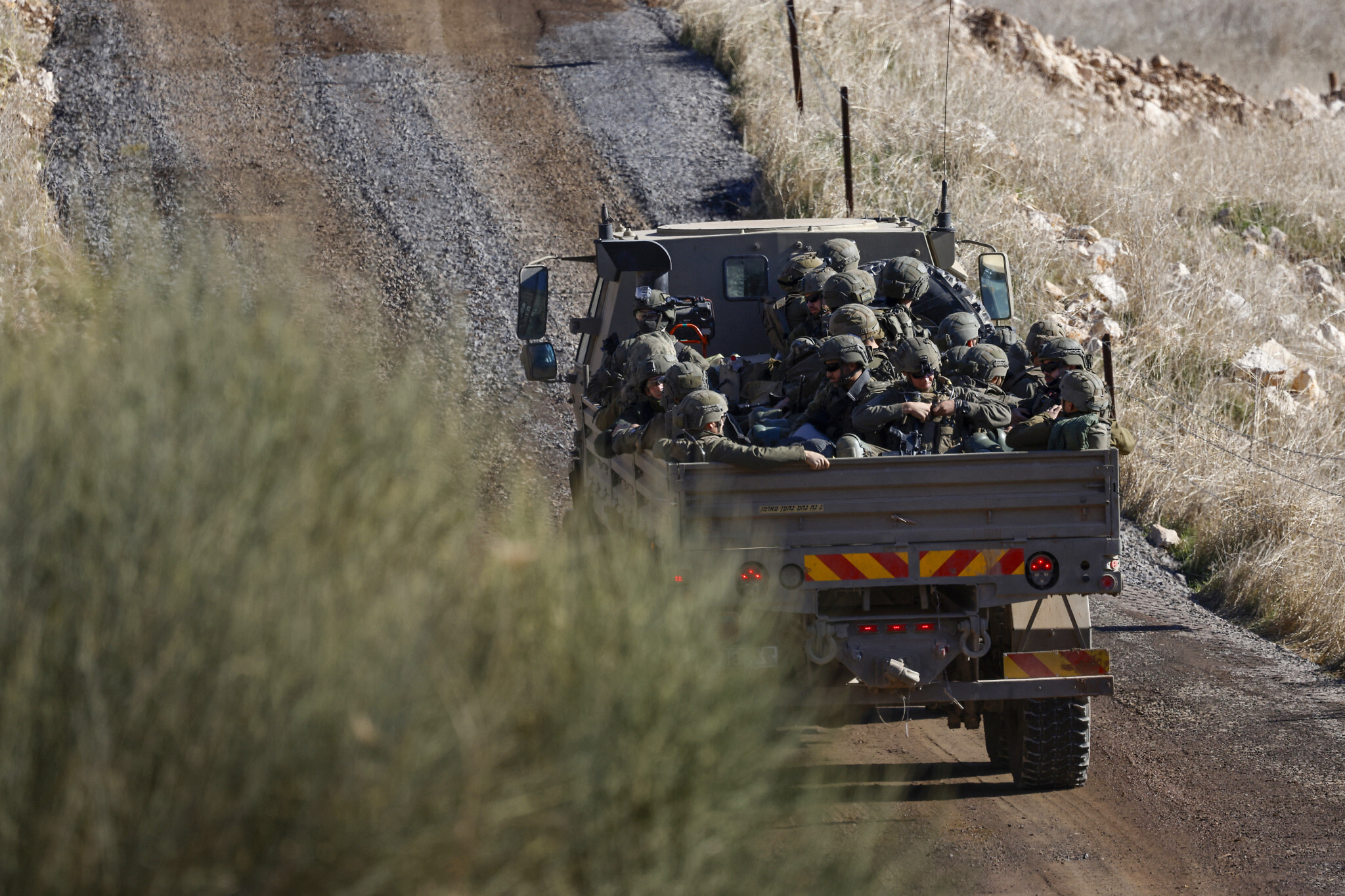



Prime Minister Benjamin Netanyahu said Sunday that Israel’s operation against Iran has opened up “broad regional possibilities,” while saying that freedom for hostages was a top priority.
“First of all, [we need] to free the hostages,” he said during a visit to a Shin Bet facility in southern Israel. “Of course, we will also have to solve the Gaza issue, to defeat Hamas, but I believe that we will achieve both tasks.”
His comments were broadly interpreted in local media as prioritizing a deal to return the 50 remaining captives in Gaza before all else, as Israel faces mounting US pressure to reach a deal to end the war, and amid reported plans by Washington for sweeping regional agreements aimed at normalizing relations between Israel and its neighbors—particularly Saudi Arabia and Syria.
The premier led a high-level cabinet meeting Sunday night in the IDF’s Southern Command Headquarters in Beersheba to discuss the Gaza war and hostage deal efforts. Defense Minister Israel Katz and other ministers, Netanyahu’s aides and senior IDF officers attended the top-level ministerial meeting.
Hebrew media outlets reported that the meeting ended without a decision being made and that further discussions were scheduled for Monday.
Arab mediators had been hoping that Israel would agree to send a delegation to Cairo during the meeting, an Arab diplomat told The Times of Israel.
On Monday, Strategic Affairs Minister Ron Dermer was set to meet in Washington with American officials to get on the same page with the US before another round of indirect talks in Cairo, the diplomat and a US official familiar with the matter told The Times of Israel.
Dermer will face pressure from the Trump administration to end the war in Gaza, according to the sources.

Remaining sticking points between the sides include Hamas’s demand for a permanent end to the war — as opposed to Israel’s efforts to secure a temporary ceasefire that leaves open the option for it to resume fighting.
Hamas is also demanding, with the backing of the Arab mediators, a return to old mechanisms for distributing humanitarian aid, or the establishment of a new system to replace the current one managed by the Gaza Humanitarian Foundation.
Israel has called the GHF essential in preventing the diversion of aid by Hamas, but the US- and Israeli-backed system has forced Gazans to walk long distances in order to pick up food, while also crossing IDF lines and repeatedly coming under deadly fire.
Mediators had been pushing Israel to send a delegation to Doha earlier this month in order to discuss a bridging proposal that Qatar and Egypt had put together that aimed to merge US special envoy Steve Witkoff’s latest offer with Hamas’s response, the diplomat said. The mediators had hoped that Israel’s delegation would arrive in Doha on June 13. But early that day, Israel launched its opening salvo in the war against Iran, putting a halt to talks until the war ended.
Netanyahu is also believed to be planning a visit to the US in the next two weeks, in a bid to advance a diplomatic initiative to end the fighting in Gaza and reach a normalization deal with a plethora of Muslim-majority countries.
According to IDF sources speaking to Channel 12 news Saturday, the army seeks to wrap up its ground operation in the Gaza Strip, assessing that there are no more significant gains to be achieved without endangering the lives of remaining hostages.
The US is widely reported to be urging Netanyahu to agree to a ceasefire in Gaza, with Trump raising expectations Friday with a prediction that a hostage-ceasefire deal could be inked within a week.

Early Sunday, the president demanded Israel and Hamas make a deal on his Truth Social account, writing: “MAKE THE DEAL IN GAZA. GET THE HOSTAGES BACK!!!”
The post, which was bereft of context, came hours after Trump called for a second time for Israeli prosecutors to close their case against Netanyahu, saying, “He is right now in the process of negotiating a Deal with Hamas, which will include getting the Hostages back.”
Alongside renewed pressure to reach a hostage-ceasefire deal, Trump is also reportedly seeking to expand the Abraham Accords by bringing Syria, Saudi Arabia, and other countries into the fold.
In an interview with Fox News Sunday, Trump appeared to echo Netanyahu’s optimism regarding expanded possibilities in the region, insisting more countries will make peace with Israel as a result of the US and Israeli campaign against Iran.
“We have some really great countries in there right now,” he said, “and I think we’re going to start loading them up because Iran was the primary problem. I actually thought Iran would… we had a period of time where I thought Iran would join the Abraham Accords along with everybody else.”
US Ambassador to Turkey Tom Barrack said that the 12-day operation had opened the way to a “new road” for the Middle East in which Turkey will have a key role to play.
“What just happened between Israel and Iran is an opportunity for all of us to say: Time out. Let’s create a new road, [and] Turkey is key in that new road,” Barrack, who is also the US special envoy to Syria, told the Anadolu state news agency.
Amid reported indirect talks between Syria and Israel, Abraham Cooper, an American rabbi who held talks this month with Syria’s Islamist leader Ahmed al-Sharaa, told Kan news that, with Trump’s help, a meeting between Netanyahu and the new Syrian president was possible.
“If Trump signals that he is going to stay involved and tells Sharaa, I am going to help rehabilitate your country, then anything is possible. Without that, it will go slowly, step by step,” Cooper continued.
A Syrian official told Kan that “the Americans are a key factor” in ongoing discussions between Israeli and Syrian negotiators.

He further elaborated on the points touched on in talks, emphasizing that the main concern discussed so far was the withdrawal of IDF troops from a buffer zone they created in the south of the country after the fall of president Bashar al-Assad’s regime.
Syria has not brought up the issue of the Golan Heights — which Israel conquered during the 1967 Six Day War — in negotiations with Israel, he said. In past talks under the Assad regime, the return of the Golan was set by the Syrians as a precondition for peace.
The official added that “the contact between Israel and Syria could be very meaningful,” and that the current government in Damascus was opposed to Iran and its proxy terror groups, Hezbollah and Hamas.
